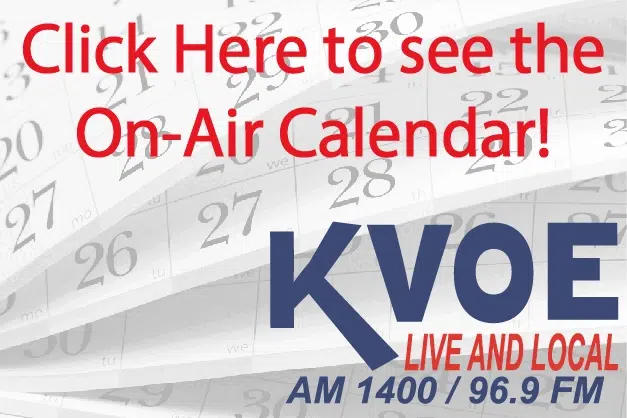Emporia City Commissioners are entering the home stretch of the 2022 budget cycle and they had quite an audience for their latest budget discussion Wednesday morning.
Several representatives of city departments including Emporia Police and Emporia Fire were in attendance following last week’s meeting where Fire Cpt. Ben Lienemann addressed the city’s recent decision on a five-year two percent pay increase and 2.5 percent merit increase. The city had originally suggested doing away with the increases in favor of a one-dollar hourly increase for all staff through the coming year with a promise of annual re-evaluations.
Lienemann had at one time stated the proposed dollar increase was a “slap in the face.” Lienemann’s comments appeared to have the desired effect as commissioners took up the conversation once again Wednesday morning during its final budget discussion ahead of a Sept. 15 public hearing where the budget could be approved for publication.
During the meeting, commissioners agreed to include $750,000 into the general fund salary budget to compensate for the original 2 percent wage increase, 2.5 percent merit increase and a 12 percent raise in the city’s wage scale. All of the increases will occur in the coming fiscal year with reevaluations of the budget to occur on an annualized basis.
Mayor Rob Gilligan says the city’s current plan of adding additional enhancement for salaries “was always the plan.”
City Treasurer Janet Harouff says she believes this is a fair compromise as it allows the city to better compensate their employees while not locking future commissions into any long-term agreements they may not be able to afford in future years.
Last week, Cpt. Lienemann stated the department is soon to be short five individuals with no new individuals looking to join the department at this time. He believes the wage increase could help attract new employees, however:
Emporia Police Chief Ed Owens says he understands both sides of the situation, however, he feels it is a conversation that “we need to get done.”
Commissioner Becky Smith says Wednesday’s discussions are not a permanent fix for the wage discrepancy, however, she thinks it is a good starting point.
The city’s wage scales have not seen a significant increase since 2008. There was a minor increase of two percent approved back in 2014, however, since 2008 the Consumer Price Index has increased 24.82 percent meaning the 2014 increase did not bring the scales up to current CPI levels.
Tuesday, the Emporia Fire Department delivered a letter to the Emporia City Commission regarding their feelings on the wage scale discussion. The letter has received more than 40 signatures of support by members of the Emporia Fire Department from the Battalion Chief level down. You can find the letter in its entirety below.
To the City Commission,
The undersigned members of the Emporia Fire Department have heard you speak about our low wages.
You have recognized that all city employees are underpaid. This is a longstanding problem that has only
been compounded, year after year. The last time the pay scale was significantly altered was in 2008. Jo
Lynne reports that inflation has risen over 24 percent in the years since. During that same time period,
only one 2% COLA raise has been granted, in 2014. It should be noted that no merit raises were granted
that year. Most of the fire department earns a 3% merit raise. For us, 2014’s COLA raise was largely a
net loss. With the solitary COLA raise, we are still well, well behind inflation.
We have heard your plan: to raise the pay scale by 12%. This will be a pay bump for a few. For the rest
of the city, you offer a dollar per hour wage increase. At the mayor’s request, personnel expenses were
flatlined for 2022 – 2026. We understand this to mean that merit raises, as it now stands, are not in the
five-year budget. Were the merit raises to be left in the five-year budget, the budget would show the
city’s reserves depleted. We further understand that the city commission felt that it would be
irresponsible to approve a five-year budget that shows the city’s reserves so depleted. Some of us have
been reassured that the intent is to keep merit raises. But, that will be a year-to-year discussion. Intent
is well and good. But the disappearance of merit raises from the five-year budget seems to run counter
to that intent.
We feel that it would be irresponsible for you to approve any such plan that does so poor a job of
addressing the needs of the city’s employees.
The city commission has acknowledged that we have a retention problem. The fire department is short.
The police department is short. From listening to city commission meetings, departments are short city-
wide. Jo Lynne reported an 18% turnover rate. This fuels the city’s recruitment problem. The city
needs more employees, yet cannot offer a competitive wage to entice them. Dealing with the retention
problem helps to mitigate the recruitment problem.
Raising the pay scale by 12%, while refusing to raise all employees by the same amount, can do nothing
but exacerbate the city’s retention problem. Besides damaging morale by compressing wages, such a
decision devalues loyalty, experience, and training. Surely this is not the message the city commission
wants to send to the employees that have stood by the city all this time.
In a study session on June 23 rd of this year, Mayor Gilligan estimated it would take a roughly 10 mills
increase to the mill levy to both raise the pay scale by 12%, as well as raise the wages of the city’s
employees by 12%. Mayor Gilligan illustrated that the city makes money by taxing sales, imposing fees,
and with property taxes. The city can spend less by cutting programming and investment dollars, or
services that the city provides. Alternatively, there can be a shifting of programs or a shifting of budget
dollars. He has acknowledged that the city, as an employer, is “just no longer competitive.”
On July 28 th , the mayor discussed a hypothetical situation in which city employees would see an average
wage increase of 4.5% over the next 5 years, before immediately dismissing it. Such raises would
require, if an increase to the mill levy was the only method used to fund it, a 25 mills increase to the mill
levy. The unfortunate truth is, even if these hypothetical raises became reality, the city’s employees
would STILL be behind. In 2026 the city’s employees would be, more or less, where we should be now,
in 2021. Another unfortunate truth is the economy is looking at record inflation increases this year and
in 2022, at least. Again, city employees will be farther behind.
The city’s employees need the absolute best wage increase that the city can provide now. We deserve
more than an ephemeral notion that merit raises will be evaluated on a year-to-year basis, but will be
left out of the five-year budget. A real plan to address wages needs to come together expediently. On
July 28 th , the mayor stated that “maybe we’ve just avoided the real conversation for the last 5 years in
our budget, because we haven’t had a real wage conversation.” Please, have that conversation now.
Revenue clearly must be added to increase compensation for city employees, be it raising the mill levy,
spending the sales tax on wages, and / or increasing fees. Perhaps a combination of all those will be
necessary, perhaps even cutting services and investment dollars, along with other budgetary changes.
In recent years, a wage study was considered. It was opted against in a commission meeting, citing an
inability to increase compensation to the degree that a wage study would suggest. If the commission
refuses to find the depth of the problem via wage study, can the city not find a way to at least attempt
to keep the pay scale on pace with inflation? Existing, loyal employees should not fall victim to yet
another compression of their wages. Their wages should be brought up by the same percentage, so that
they may keep the position they have already earned in the pay scale.
A 12% increase to the pay scale, in addition to a 12% increase to the wages of all city employees, seems
reasonable. That would put city employees half way to keeping up with inflation. In commission
meetings, most of the focus is on increasing the mill levy. Can 12% not be achieved by a combination of
increasing the mill levy, utilizing the sales tax, increasing fees, while cutting some programming and
investment dollars, as well as some of the more non-essential services, in addition to shifting programs
and / or budget dollars?
How short do departments in the city need to get before a truly meaningful change to wages is enacted?
Is it when trash remains on the curb, because of unstaffed trash trucks? All jokes aside, we doubt there
will be any city commissioners staffing those trash trucks. Will it be when the city is short half the police
department? Or when we don’t have enough firefighters to attempt a rescue at a structure fire? Will it
be when we don’t have enough EMS personnel to respond to one of your family member’s
emergencies?
The plan can’t be to just hope that this city’s employees don’t move on to the far more competitive
wages offered by other municipalities and private business. The wage shortfall is a problem that is only
getting worse, every year it is neglected by the commission. Please don’t kick this can any further down
the road. Make the necessary changes to the five-year budget so that city employees may be
compensated fairly.
Sincerely,
The Undersigned





















